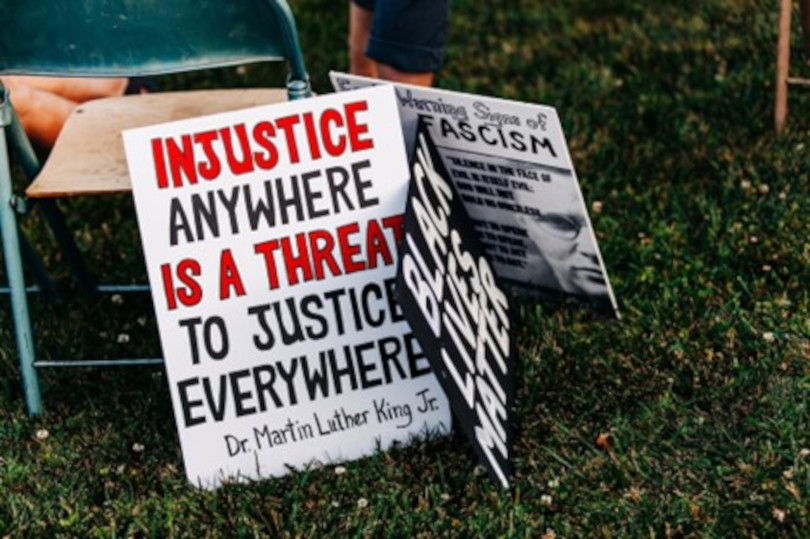The thirteenth of this month marked the first time that a large-scale Juneteenth celebration was held at the White House. Following President Joe Biden’s signing Juneteenth into law as a federal holiday two years ago, this year’s holiday was celebrated on the White House’s South Lawn with song, dance, and sentimental speech. The celebration featured marching bands and choirs from historically black colleges and universities, professional dancers, and performances by Grammy-winning artists Jennifer Hudson, Audra McDonald, and Ledisi.
A Historic Celebration
The “grandmother of Juneteenth,” Opal Lee, who was present when Biden signed the holiday into law and cited by him as particularly instrumental in the fight for it to achieve federal recognition, offered remarks at the event along with the president and Vice President

Kamala Harris. Each of the three speeches was centered on the importance of freedom and the individual’s responsibility to extinguish hate wherever it’s found. The president and vice president’s speeches somewhat echoed the sentiments of “The Hill We Climb,” the poem delivered by former National Youth Poet Laureate Amanda Gorman at Biden’s 2021 inauguration. They both illustrated the United States as an imperfect union that is constantly striving toward equality and equity for all. In Vice President Harris’s words, “America is a promise—a promise of freedom, liberty, and justice. The story of Juneteenth, as we celebrate it, is a story of our ongoing fight to realize that promise.”
The president shared the vice president’s view that making Juneteenth a federally recognized holiday was an important step in said “ongoing fight,” remarking rather dramatically that “Juneteenth as a federal holiday is meant to breathe new life into the very essence of America.” This is a great deal of pressure to heap onto a single day—a single anything, really—no matter how symbolically important. But is there evidence elsewhere in the union of this fight being waged?
Reparations on the Rise
The traction gained in the debate concerning reparations for African Americans in the past few years—even in the past few months—makes an argument. The question of how compelling an argument it makes is, of course, completely subjective. But the fact remains that cases for reparations, both rhetorical and legislative, are being made in several cities and states throughout the country, and the pace at which they’re being made is picking up. In 2020, California became the first state to create a reparations task force which reported this year that the state could owe its Black residents more than five hundred billion dollars due to a racial wealth gap created by decades of economic and otherwise systemic oppression. In 2021, the Chicago suburb of Evanston, Illinois became the first city in the country to issue reparations payments to African American descendants of slavery.
Earlier this month, New York lawmakers passed a similar bill to the one that established the task force in California. Also, a public hearing was held in Washington, D.C. regarding the reintroduction of another similar bill (it was first proposed three years ago) in the D.C. council. To again mention actions taken by the federal government, the Senate unanimously passed the Emmett Till Antilynching Act last year. This extremely belatedly—and after several failed legislative attempts—made lynching a federal hate crime.
Baby Steps
The antilynching act, the positive momentum of the ongoing reparations debate, and Juneteenth’s newfound status as a federal holiday may not point to Vice President Harris’s purported “promise of freedom, liberty, and justice” just yet, but they can perhaps at least be said to point to something. As the vice president, president, and Opal Lee all confirmed during last week’s celebration, hate is nowhere near done having its way with the American public. Therefore, our continued vigilance is of the utmost importance. Any step, however incremental, in the direction of racial equality, is an essential one. It can’t be denied that there are steps being taken, but it must also be understood that it will take much more than a holiday to “breathe new life” into the essence of the republic.
Elected officials are not always fighting the “ongoing fight” to realize the American promise of life and liberty mentioned in the Constitution and Pledge of Allegiance. In fact, they’re often fighting against it. In the modern era, they’ve been known to purposely complicate the democratic process, contribute to mass incarceration, and excuse white supremacist-tinged threats to national security. (These are just a few sins that Black Americans are disproportionately affected by.) Staying on the road to freedom requires that our chosen representatives not only make good on their own promises but on the nation’s promises. Equality cannot exist under a government composed of career hypocrites. As activists and advocates across America continue to speak truth to power, America must respond by speaking the truth.


